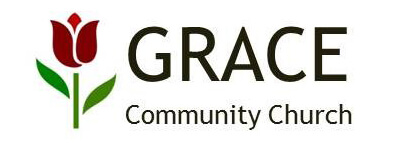A Ransom For All
Jesus refers to Himself in a variety of ways in the Scriptures, Son of Man, Son of God, The Way, the Truth, the Life, and so on, but only once, in parallel passages in Math.20:28, and Mark 10:45 does He refer to Himself as a RANSOM. In modern days we often use the word ransom in, say, a hostage situation, where the hostage will be released if a ransom price is paid to free this hostage. It is a demand in the asking for the release of the one held captive. In the Bible we see this language used in the work of REDEMPTION by Jesus Christ. Redemption has more than a meaning of deliverance to it. The Greek word for redemption is APOLUTROSIS. To redeem we have from the Greek LUTROSIS, redeemer in Greek is LUTROTES, and the Greek word LUTROO is to set free upon payment of a ransom, and at the middle of the Greek word APOLUTROSIS is the Greek word LUTRON, from which we get the English word ransom. It is simply securing a release by the payment of a price.
The word ransom in context of Matthew and Mark is where the two disciples desire to be one on His left and one on His right in His kingdom. Jesus responds that it is for the ones the Father has prepared it for and that for whoever wishes to be great among you shall be your servant, and whoever wishes to be first among you shall be your slave. That is what Christ will be to us all as He mentions that He did not come to be served but to serve and give His life a ransom for many. The great theologian John Murray states, "Ransom pre-supposes some kind of bondage or captivity, redemption therefore, implies that from which the ransom secures us. Just as sacrifice is directed to the need created by our guilt, propitiation to the need that arises from the wrath of God, reconciliation to the need arising from our alienation from God, so redemption is directed to the bondage to which our sin has consigned us." We see this state we are in that has produced this love that God has for us that Paul points out to us in 2Tim.2:26,"we are in the snare of the devil, having been held captive by him to do his will."
In 1Tim.2:6, we see the word ransom mentioned again, this time, and only here in the New Testament we see the Greek word ANTILUTRON, it is very emphatical, signifying the exchanging of condition with another, the laying down of one's life to save another's. This our Savior has done for us. Jesus gave Himself up to death. Psalm 49:8 states that, "The redemption of his soul is costly." The word ANTILUTRON expresses that the LUTRON (ransom) is equivalent in value to the thing procured by means of it. This implies that the exchange is decidedly a benefit to those on whose behalf it is made. I think of 1Peter 3:18, "For Christ died for sins once for all, the just for the unjust, so that He might bring us to God, having been put to death in the flesh, but made alive in the spirit." The great English Puritan Stephen Charnock states, "ANTILUTRON signifies an adequate price, or a counter price, as when one doeth or undergoeth something in the room of another; as when one yields himself a captive for the redeeming of another out of captivity, or gives up his own life for the saving of another man's life, so Christ gave Himself (ANTILUTRON) a ransom, or counter price, submitting Himself to the like punishment that His redeemed ones should have undergone."
How great was this grace the Lord has bestowed on us? Paul answers in 1Tim.1:14, "The grace of our Lord was more than abundant." The Greek word here, and only found here in the New Testament, HUPERPLEONAZO, means to super abound, to abound exceedingly. PLEONAZO means abound, the Apostle added a preposition to an already strong verb to lay greater emphasis on the exceedingly abundant grace of the Lord Jesus Christ." It reminds us of Romans 5:20, "The Law came in so that the transgression would increase, but where sin increased, grace abounded all the more." Ordinary human words cannot express how great that grace was and is. And to conclude today, the great English Puritan Isaac Ambrose states, "Let us look upon a crucified Christ, the remedy of all our miseries. His cross hath procured a crown, His passion has expiated our transgressions. His death has dis-armed the Law, His blood hath washed a believer's soul. This death is the destruction of our enemies, the spring of our happiness, and the eternal testimony of divine love."
Elder Randy Slak
04/09/2024
